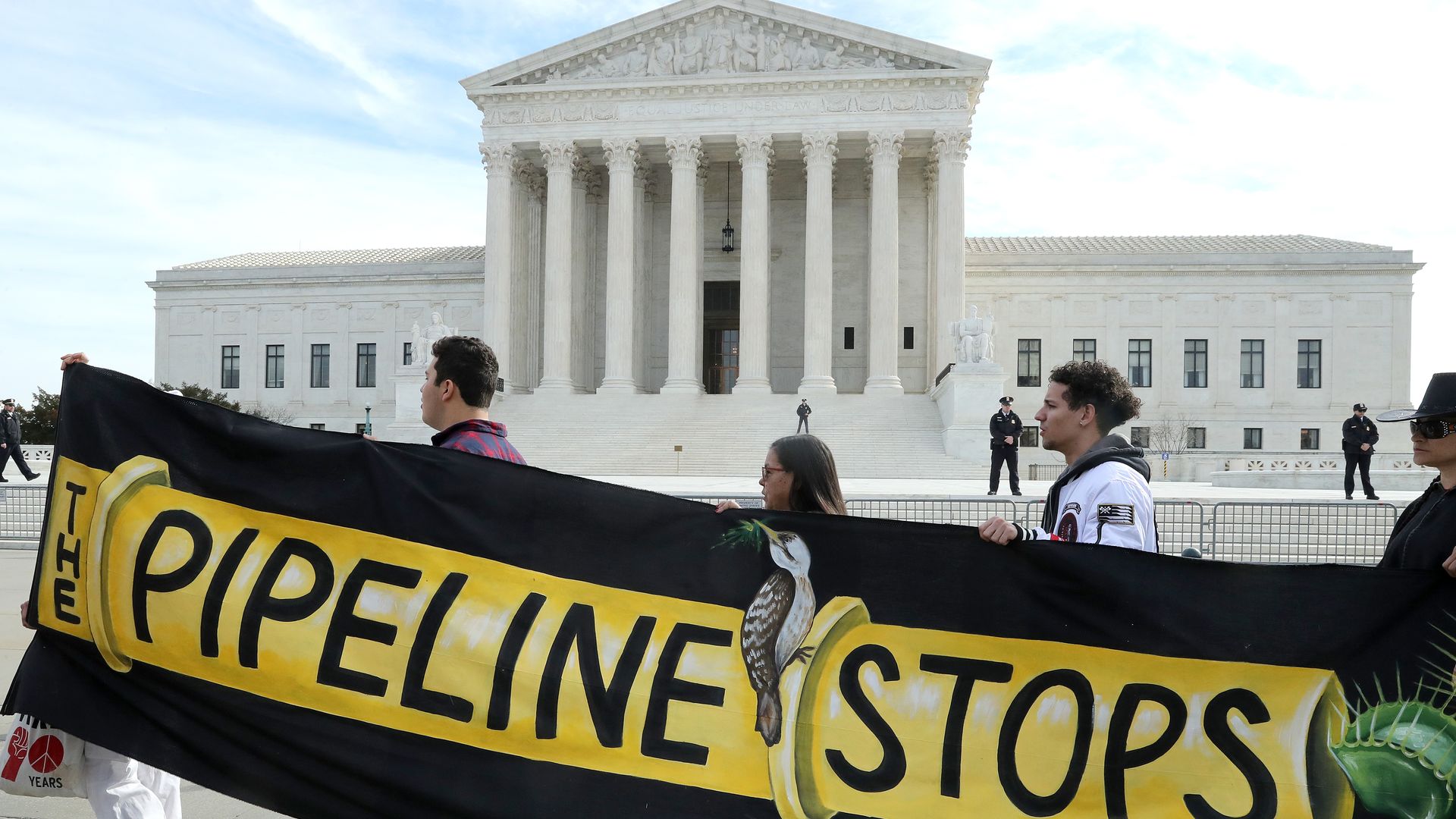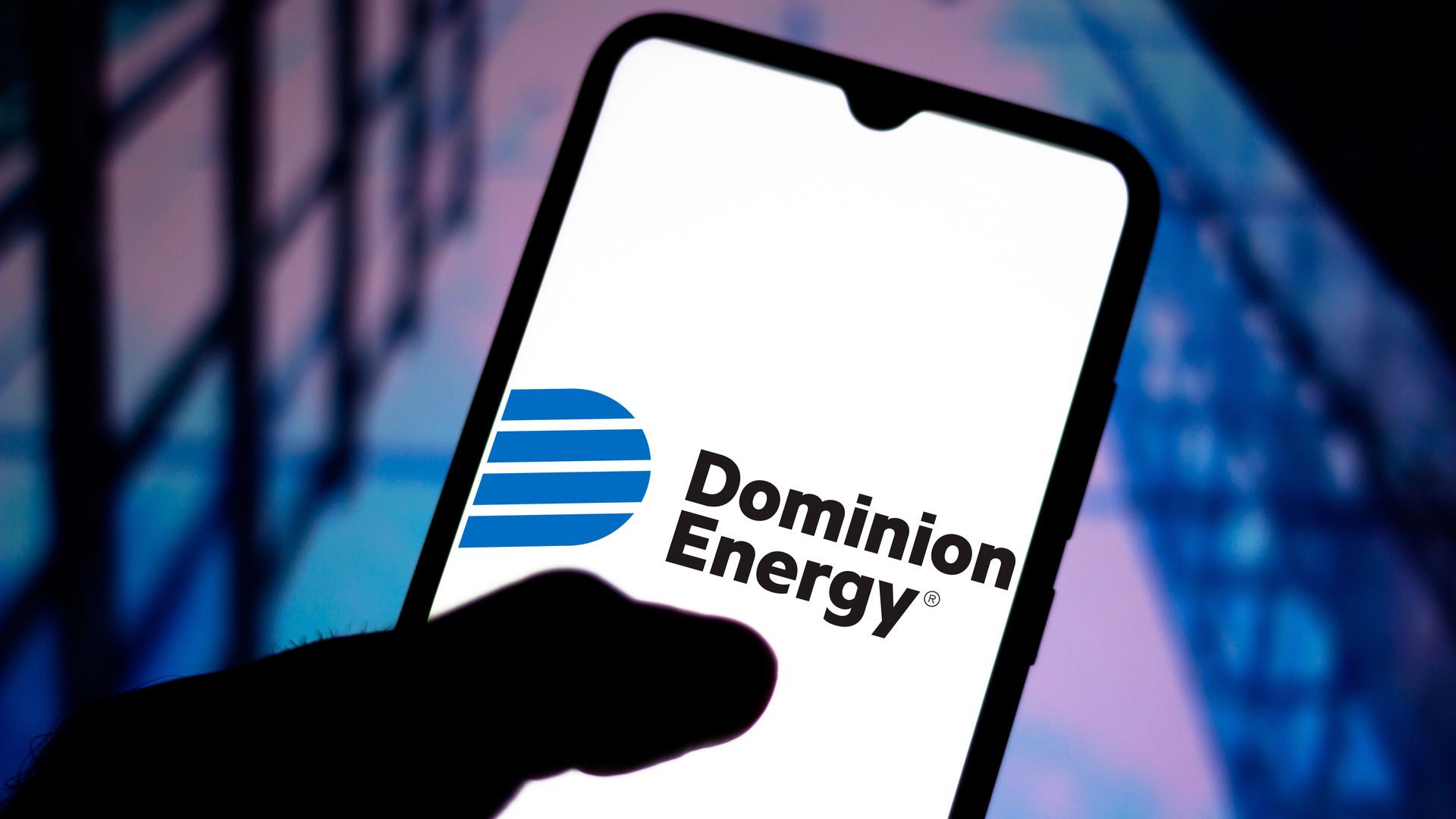Ben Geman, author of Generate AXIOS

Climate activist groups protest in front of the U.S. Supreme Court as the court heard cases on Dominion Energy's proposed $7.5 billion Atlantic Coast Pipeline crossing the Appalachian Trail. Photo: Mark Wilson/Getty Images
Duke Energy and Dominion Energy threw in the towel Sunday on the Atlantic Coast Pipeline, a proposed 600-mile natural gas line from West Virginia to North Carolina.
Why it matters: It ends one of the highest profile battles over fossil fuel infrastructure in recent years, and its demise is a win for the environmental groups that spent years fighting it.
It also underscores hurdles facing big pipelines and other projects, despite White House efforts to speed up approvals and scale back environmental reviews.
Catch up fast: Despite a favorable Supreme Court ruling last month, the project faced ongoing legal and permitting battles.
The price tag had reached $8 billion — far above initial estimates — and the project had become "too uncertain to justify investing more shareholder capital," the companies said.
The cancelation came the same day that Dominion announced sale of its gas transmission and storage assets to Warren Buffett's Berkshire Hathaway in a $10 billion deal.
Between the lines: Here are a few takeaways from the project's demise...
Paperwork matters: Reuters' David Gaffen yesterday re-upped his outlet's October 2019 story, which found that administration efforts to speed up permitting for pipelines had "backfired," because they created new legal vulnerabilities for projects already facing activist litigation.
States matter: A note from the research firm ClearView Energy Partners says that some states including Virginia — which is on the pipeline route — push policies that favor renewables. They called the cancellation a sign of "subnational greening" that makes it harder to build projects already facing opposition from environmentalists.
The 2020 election matters: This project may be dead, but the outcome of November's election will affect the trajectory of others. The Trump administration backed the project in the courts and politically, while Joe Biden would be less favorable to fossil fuel projects (the campaign did not provide comment on this decision).
Natural gas pipeline project canceled after Supreme Court victory
Rashaan Ayesh

Photo: Rafael Henrique/SOPA Images/LightRocket via Getty Images
Dominion Energy announced Sunday it has agreed to sell its natural gas transmission and storage network to Warren Buffett's Berkshire Hathaway in a deal valued at $10 billion, including the assumption of debt.
Why it matters: The deal comes as Duke Energy Corp. and Dominion Energy announced they are canceling their plans for the $8 billion Atlantic Coast Pipeline following a Supreme Court ruling. The ruling removed major hurdles for the companies, but "recent developments have created an unacceptable layer of uncertainty and anticipated delays" for the project.
Between the lines per Axios' Ben Geman: The Atlantic Coast Pipeline project has been among the high-profile battles over fossil fuel infrastructure that have been intensifying in recent years.
Its demise is a win for environmental groups and shows how energy companies face continued hurdles to building big pipelines and other projects, despite White House efforts to speed up approvals and ease environmental reviews.
Delays of the project pushed costs to increase, CNBC reports.
The state of play: This is Berkshire Hathaway's first major deal since the coronavirus pandemic hit the U.S., per CNBC.
Buffett is spending $4 billion to buy Dominion Energy's national gas transmission and storage assets.
Berkshire Hathaway previously carried 8% of all natural gas transmission in the U.S., but will now carry 18%.
No comments:
Post a Comment